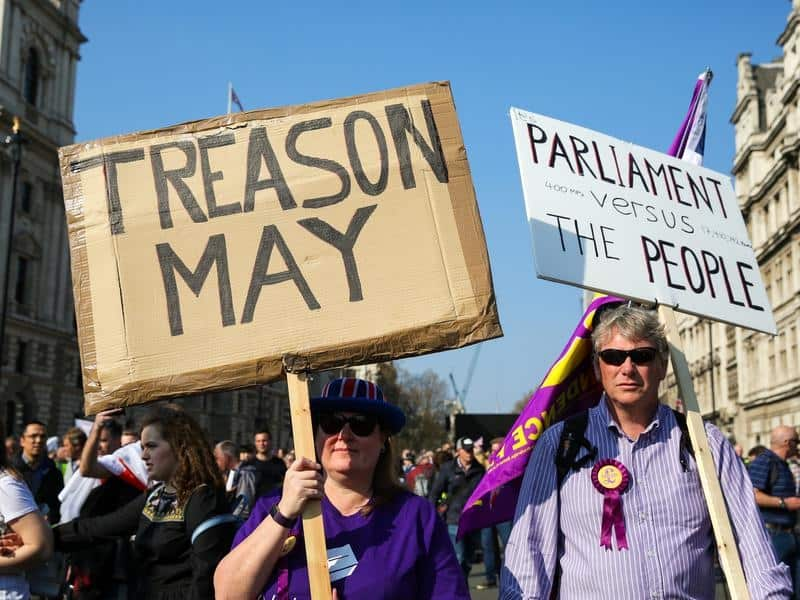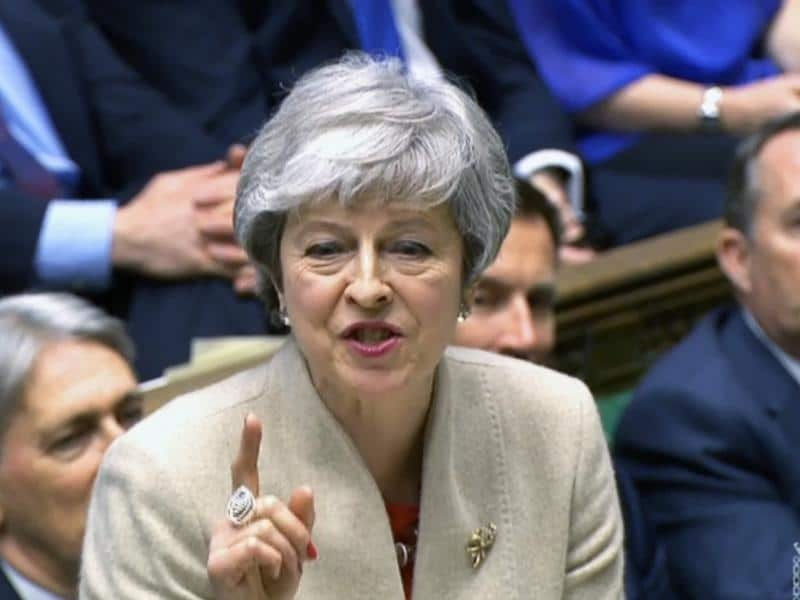The European Union's chief negotiator Michel Barnier has warned Britain crashing out of the bloc without an orderly withdrawal agreement next week is "day after day more likely".
He was addressing a think tank in Brussels the day after British lawmakers again failed to unite behind any alternative to the Brexit withdrawal agreement Prime Minister Theresa May signed last year.
Earlier, British MPs failed to reach a majority in an indicative vote on four alternative Brexit options selected by Speaker John Bercow from nine proposals put forward by the parliament.
Proposed alternatives for retaining much closer economic ties after Brexit, holding a second referendum or stopping Brexit to prevent a no-deal departure all failed to win a majority of votes in parliament.
The second referendum proposal garnered the most votes in favour - 280 - but was beaten by 292 votes against.
The next most voted option was a plan to stay in a permanent customs union with the EU. It won 273 votes but there were 276 votes against, raising hopes among its supporters that the idea could be revived.
Parliament "has once again failed to find a clear majority for any of the options," Brexit Secretary Stephen Barclay said after the vote.
"The default legal position is that the UK will leave the EU in just 11 days' time" without a deal, he said.
Following the vote Conservative, MP Nick Boles, who proposed the Commons 2.0 option, resigned from the party, announcing that he had "failed, chiefly, because my party refuses to compromise."
"I regret, therefore, to announce that I can no longer sit for this party," he said, before walking out of the chamber to cries of "don't go".
Speaking in the House of Commons, Labour leader Jeremy Corbyn said it was "disappointing" that no option had been picked and requested a chance to consider indicative votes for a third time.
Prime Minister Theresa May has made it clear that Britain needs to be brought back together after the 2016 Brexit referendum, her spokesman said when asked about her chief whip's comments that a softer Brexit had been inevitable after the 2017 election.
Earlier, Julian Smith, her parliamentary enforcer, told the BBC that May's loss of her majority at a 2017 election would "inevitably" lead government to accept a softer Brexit and that her ministers had shown the "worst example of ill-discipline" in British political history.
"The PM made it clear that there was a need to bring the country back together after the Brexit vote and that is what they [the government] are working to achieve," her spokesman told reporters.

"This is a subject that brings out strong emotions in MPs on all sides of the debate, I think what is important is that everybody in government continues to work towards the goal of delivering on the referendum verdict."
After one of the most tumultuous weeks in British politics since the 2016 referendum, it was still uncertain how, when or even if the United Kingdom will ever leave the bloc it first joined 46 years ago.
The third defeat of May's divorce deal, after her pledge to quit if it was passed, left one of the weakest leaders in a generation grappling with a perilous crisis over Brexit, the United Kingdom's most significant move since World War II.
May could try one last roll of the dice by bringing her deal back to a vote in parliament as soon as Tuesday.
Many in May's party, though, want a much more decisive split with the EU than May was proposing. The Sun newspaper said 170 of her 314 Conservative lawmakers had sent her a letter demanding that Brexit take place in the next few months - deal or no deal.

Britain was due to leave the EU on March 29 but the political deadlock in London forced May to ask the bloc for a delay. Currently, Brexit is due to take place on April 12 unless May comes up with another option.
With no majority yet in the House of Commons for any of the Brexit options, there was speculation that an election could be called, though such a vote would be unpredictable and it is unclear who would lead the Conservatives into it.
The Conservative Party's deputy chair, James Cleverly, said it was not planning for an election. But the deputy leader of the opposition Labour Party, Tom Watson, said his party was on election footing.


